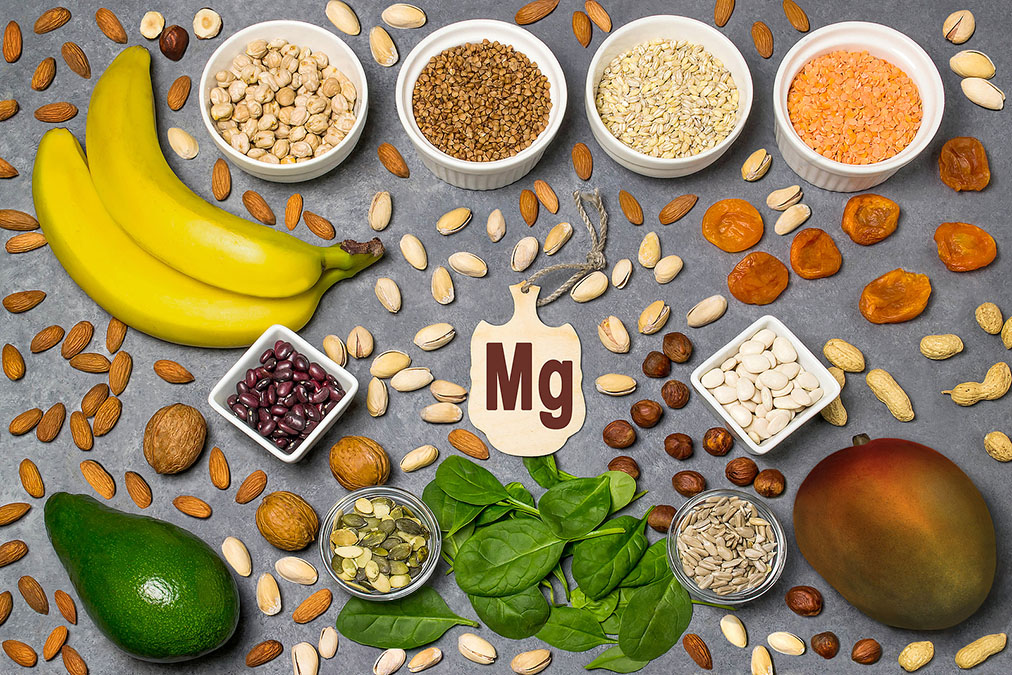 Every other person lacks this mineral, which is horrifying because it’s one of the most crucial nutrients we need.
Every other person lacks this mineral, which is horrifying because it’s one of the most crucial nutrients we need.
Especially for high blood pressure, according to a new study published in Nutrients.
Fortunately, fixing this deficiency is as simple as a minor diet adjustment or a cheap supermarket supplement.
Magnesium is essential for over 600 processes in the body, particularly those tied to heart function.
When levels drop, the effects on your cardiovascular health are serious, leading to inflammation, oxidative stress, and blood vessel dysfunction.
Researchers analyzed studies from the last 20 years and uncovered shocking findings about magnesium’s impact on heart health:
Here’s what they discovered:
-
• High Blood Pressure Risk: Low magnesium levels are linked to hypertension, heart failure, strokes, and heart attacks.
• Blood Pressure Relief: Supplementing with magnesium significantly lowers blood pressure, especially in people with diabetes or kidney disease.
• Blood Vessel Relaxation: Magnesium helps relax blood vessels while a deficiency tightens them, increasing blood pressure.
• Inflammation Marker Reduction: Low magnesium raises C-reactive protein (CRP) levels, a key risk factor for heart disease.
• Oxidative Stress Damage: Magnesium deficiency disrupts antioxidant balance, damaging blood vessels and promoting atherosclerosis.
• Essential Nutrient Interaction: Magnesium works with calcium and potassium to maintain healthy heart rhythms and blood pressure. Without it, these balances are thrown off.
• Modern Diet Shortfalls: Most diets fall short of magnesium needs, with 45% of people being deficient.
How much magnesium do you need?
-
• Women: 310–320 mg daily
• Men: 410–420 mg daily
You might need more if you weigh over 168 pounds, are stressed, or have chronic conditions.
Here’s how to increase your magnesium intake:
-
• Leafy Greens: Spinach, kale, Swiss chard
• Nuts and Seeds: Almonds, cashews, pumpkin seeds
• Legumes: Lentils, chickpeas, black beans
• Whole Grains: Brown rice, quinoa
These simple dietary adjustments can significantly lower your blood pressure, protect your heart, and shield you from future cardiovascular complications.
Getting your nutrition from food is always best, but you can also take supplements if needed.
But if magnesium is not enough to normalize your blood pressure… discover how three easy exercises drop your blood pressure below 120/80 in as little as nine minutes…

 Overcoming IBD
Overcoming IBD Multiple Sclerosis
Multiple Sclerosis Banishing Bronchitis
Banishing Bronchitis Gum Disease Gone
Gum Disease Gone Overcoming Onychomycosis
Overcoming Onychomycosis Neuropathy No More
Neuropathy No More The Prostate Protocol
The Prostate Protocol Brain Booster
Brain Booster
 Ironbound
Ironbound
 Solution for Shingles
Solution for Shingles
 The Bone Density Solution
The Bone Density Solution
 The Ultimate Healing Protocol
The Ultimate Healing Protocol
 The Parkinson's Protocol
The Parkinson's Protocol
 The Chronic Kidney Disease Solution
The Chronic Kidney Disease Solution
 Overthrowing Anxiety
Overthrowing Anxiety The Fatty Liver Solution
The Fatty Liver Solution The Hypothyroidism Solution
The Hypothyroidism Solution
 The End of Gout
The End of Gout The Blood Pressure Program
The Blood Pressure Program
 The Oxigized Cholesterol Strategy
The Oxigized Cholesterol Strategy
 Stop Snoring And Sleep Apnea Program
Stop Snoring And Sleep Apnea Program
 The Arthritis Strategy
The Arthritis Strategy The Vertigo & Dizziness Program
The Vertigo & Dizziness Program The 3-Step Diabetes Strategy
The 3-Step Diabetes Strategy Hemorrhoids Healing Protocol
Hemorrhoids Healing Protocol The Erectile Dysfunction Master
The Erectile Dysfunction Master Weight Loss Breeze
Weight Loss Breeze The IBS Program
The IBS Program The Insomnia Program
The Insomnia Program The Migraine and Headache Program
The Migraine and Headache Program The Neck Pain Solution
The Neck Pain Solution The Menopause Solution
The Menopause Solution The Ejaculation Master
The Ejaculation Master The TMJ Solution
The TMJ Solution The Acid Reflux Solution
The Acid Reflux Solution The Fibromyalgia Solution
The Fibromyalgia Solution The Psoriasis Strategy
The Psoriasis Strategy